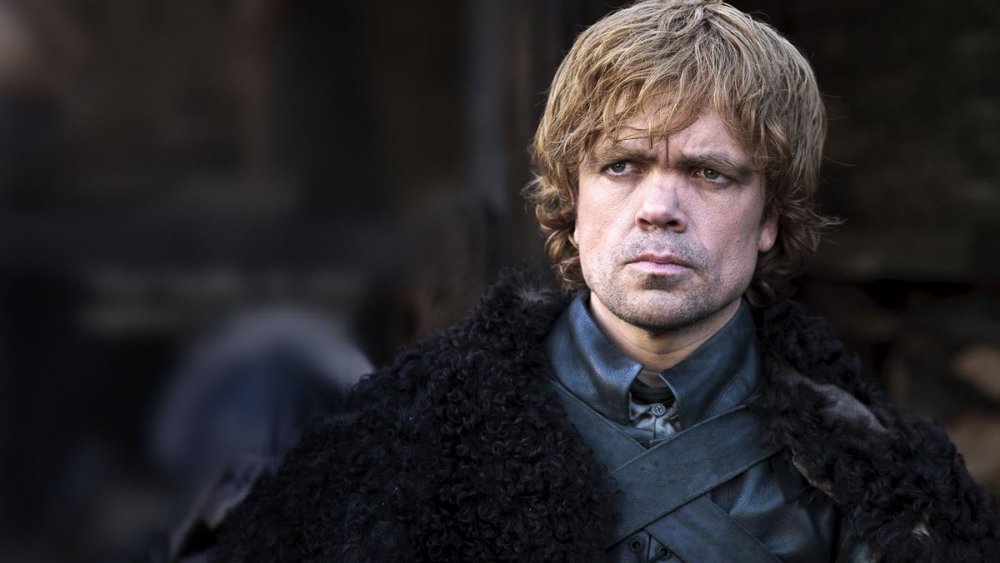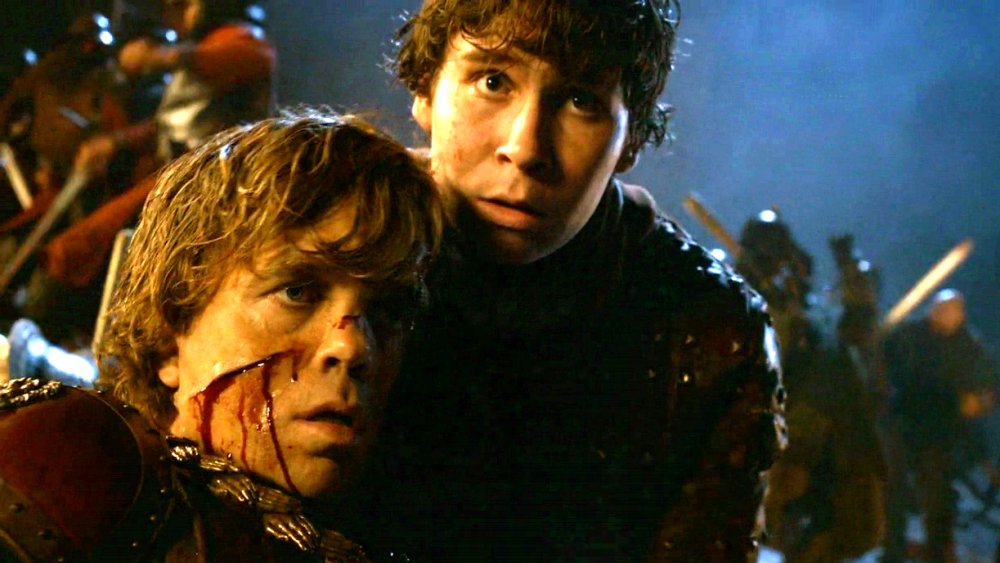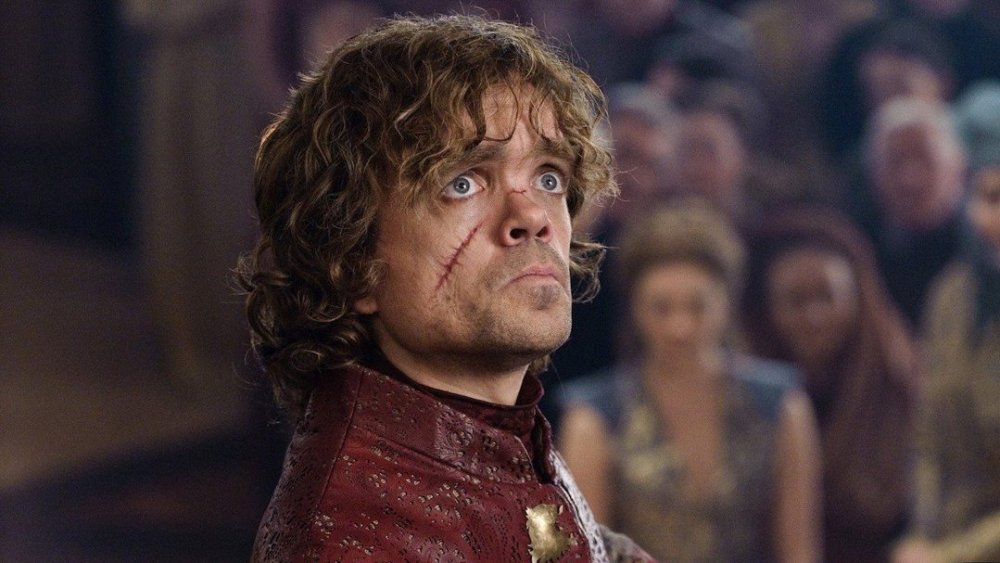Why Game Of Thrones Didn't Cut Off Tyrion's Nose
Tyrion Lannister goes by many names. This is true of both the version of the character adapted for HBO's Game of Thrones or George R. R. Martin's original brainchild from A Song of Ice and Fire. He's a lover. He's a liar. He's a leader. He's a legend. He's a let-down (from his father's perspective, or from the perspective of viewers dissatisfied with the show's final season). The list goes on.
Once in a while, Tyrion even finds himself in the role of a soldier. Westeros is chock full of fighters extraordinaire, from the Clegane brothers to young Arya Stark. Tyrion, though? He's more of a thinker than a battlefield hero. At the Battle of Blackwater Bay, however — regarded as one of the series' greatest moments — the Lannister family's least favorite child took up an ax and joined the fray. Viewers will no doubt remember that Tyrion isn't exactly rewarded for his act of heroism, but if showrunners David Benioff and D.B. Weiss had actually followed Martin's books to a tee, it could have gone even worse.
Tyrion Lannister at the Battle of Blackwater Bay
Both in A Clash of Kings (the second book in Martin's series) and on Game of Thrones, Tyrion (Peter Dinklage) plays an integral part in the defense of King's Landing against potential usurper Stannis Baratheon (Stephen Dillane) and his forces from Dragonstone. Prior to the battle, he employs pyromancers to whip up enough wildfire to do some real damage against the enemy fleet. His gambit is a resounding success, whittling the invaders down to a manageable number. Without that crucial blow, the Lannisters may not have been so successful, and King's Landing might have been in the hands of Stannis by the time Daenerys (Emilia Clarke) came knocking with a dragon and legion of Unsullied.
When the remnants of Stannis' army arrive on shore, a battled is joined on the beach, and Tyrion himself takes a backseat to allow the soldiers to do the soldiering. Withstanding the onslaught soon proves more difficult than anticipated, however, and both the Hound and King Joffrey giving up on any semblance of command.
As the only real authority figure left on scene, Tyrion steps up and takes charge. Despite lacking any significant military experience or training, he succeeds in driving Stannis' men back — until a new wave of soldiers hits. It's then that he crosses paths with Ser Mandon Moore (James Doran), a Kingsguard loyal to the throne, but unfortunately not to Tyrion. On Joffrey's orders, he slashes Tyrion's face with his sword, and only squire Podrick Payne's (Daniel Portman) intervention saves the day.
The reason Tyrion Lannister kept his nose
The injuries that Tyrion sustains from this confrontation in A Clash of Kings are a bit more substantial. Ser Mandon's sword slices off a good chunk of the littlest Lannister's nose. It's a gruesome injury, one that further deforms an already deformed man. Indeed, book Tyrion is much uglier than Game of Thrones actor Peter Dinklage, complete with heterochromia, near-white hair, and a mess of a face.
When asked about changes between the show and the books in an interview at Brown University, author George R. R. Martin used Tyrion's nose (or lack thereof) as an example. To write about the missing nose, he said, is "relatively easy for me. Actually cutting off Peter Dinklage's nose was prohibited by the actor's guild." Once the laughs died down, Martin went on to say how it's all about practicality.
Removing Dinklage's nose digitally in every scene would not only require the actor to wear a piece of green screen over his nose, but put an immense strain on the budget. That's what all such decisions come down to, Martin noted: "questions of budget and shooting time and what can be done." (That's the same reason Rick Grimes' hand was never cut off in AMC's The Walking Dead.) Considering all the awards Dinklage won and praise he received, it's safe to say that having a nose didn't affect his portrayal of the character.
Funnily enough, Tyrion isn't the only character that looks different on the small screen.


